The Kinship Bonds of Patriot Participants in the Revolutionary War: Colonial New England’s Unique Family Ties
In the heart of colonial New England, the Revolutionary War was not just a battle for independence; it was a deeply personal conflict fought among tight-knit communities. Small towns in Massachusetts were especially unique, where the patriots who took up arms against British rule were often bound by more than a shared cause.
They were related by blood and marriage, a web of kinship forged over nearly 140 years of intermarriage among early colonial families. This intricate tapestry of familial connections created a battlefield dynamic that has never been replicated since.
Even if community members weren’t interrelated, they were socially close with each other on a daily basis. It was common for colonial families to know and befriend their neighbors for generations. A concept that today would be hard to imagine.
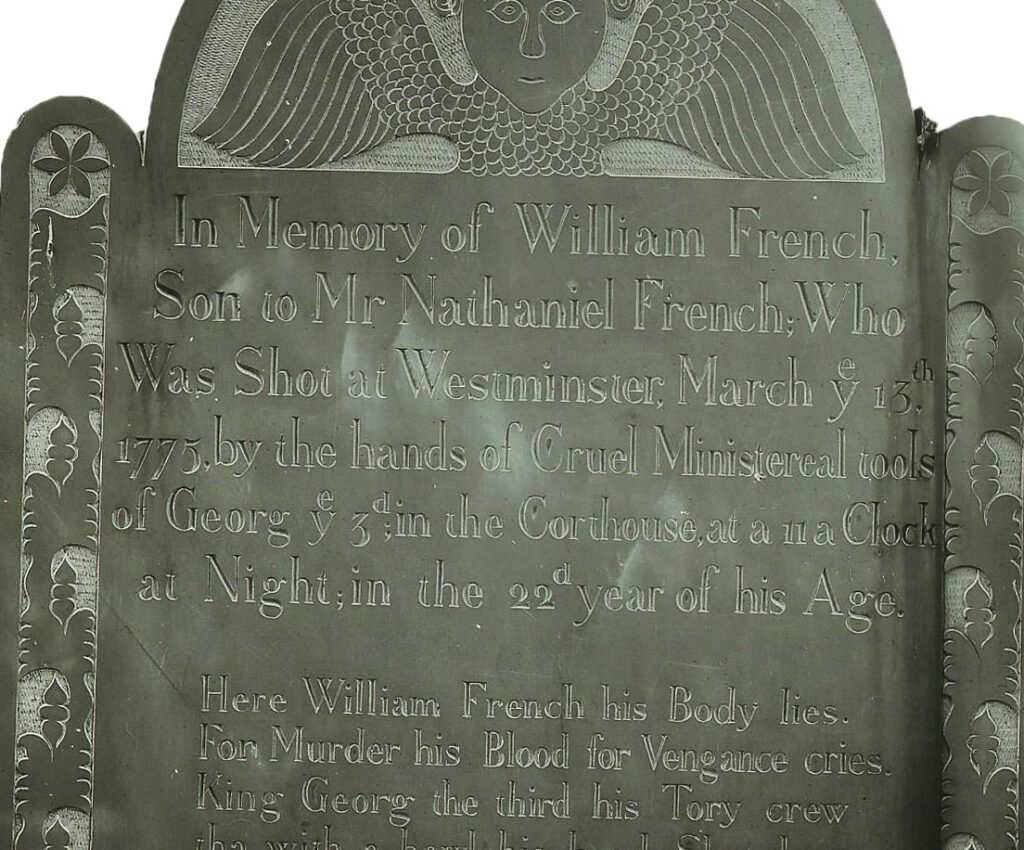
News would travel across New England colony, if a family member was killed in one area the tragic news would soon reach their home town. In this case, the vicious slaying of William French on March 13, 1775 would reach the French family home town of Billerica, MA prior to the start of the Revolutionary War at Lexington and Concord.
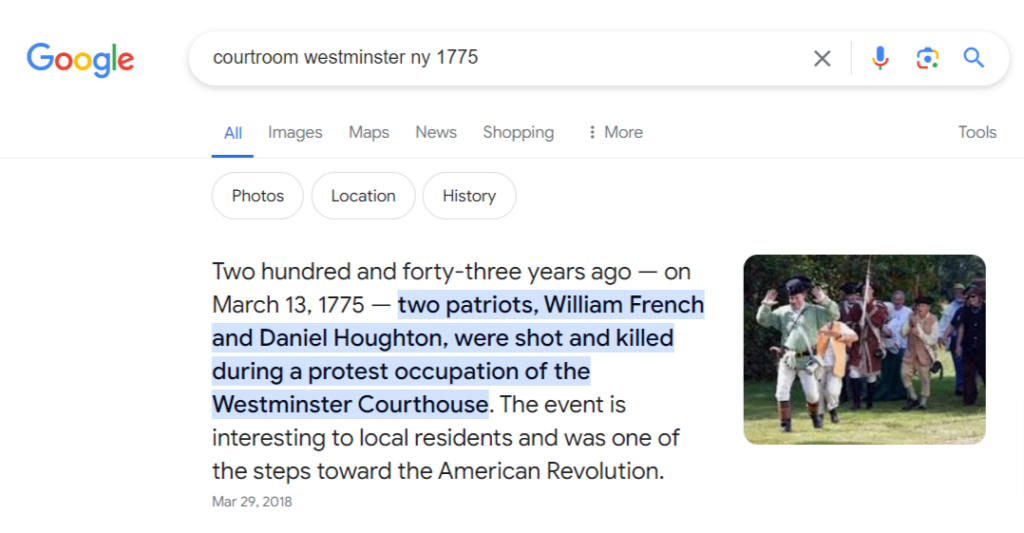
The Interwoven Families of Colonial Massachusetts
Colonial New England, particularly Massachusetts, was settled by families who often intermarried within their communities. Over generations, this practice led to a network of extended families that was remarkably interconnected.
By the time of the Revolutionary War, it was common for residents of small towns to be cousins, in-laws, or otherwise related. These relationships were reinforced by the relatively isolated and self-sufficient nature of these communities, where family ties were crucial for social and economic survival.
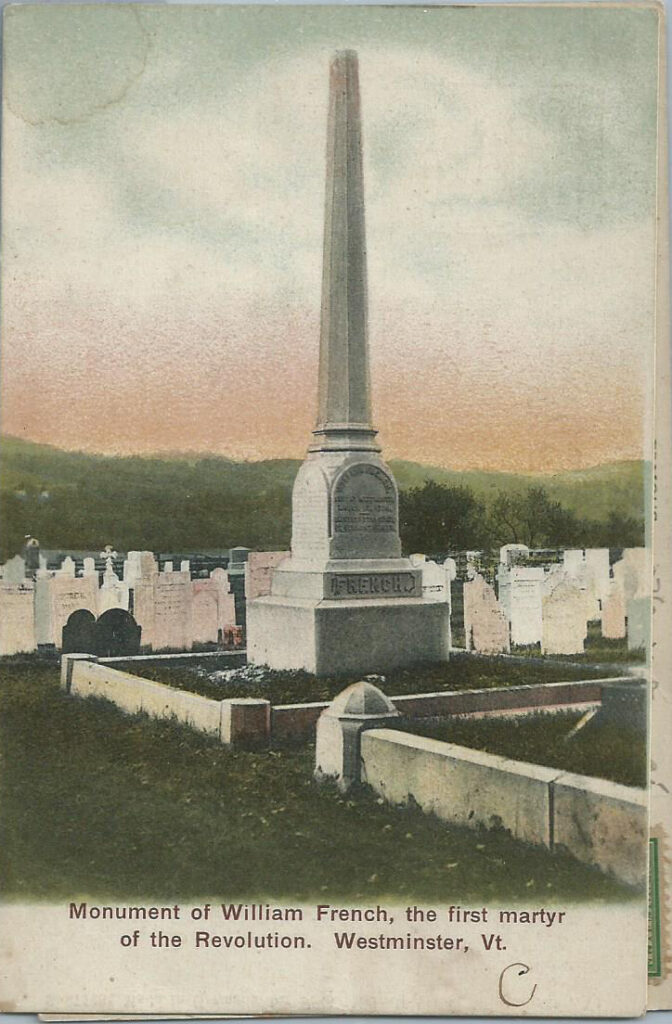
A Personal War
When the call to arms came, the men who enlisted in the Continental Army or local militias were not just neighbors; they were often brothers, cousins, uncles, and nephews. This created a battlefield environment where soldiers fought alongside their relatives.
The sense of duty and loyalty was intensified by these personal bonds. For many, the war was not only a fight for independence but also a fight to protect their family and community.
Partial List of Revolutionary War Patriot Soldiers of Billerica, MA
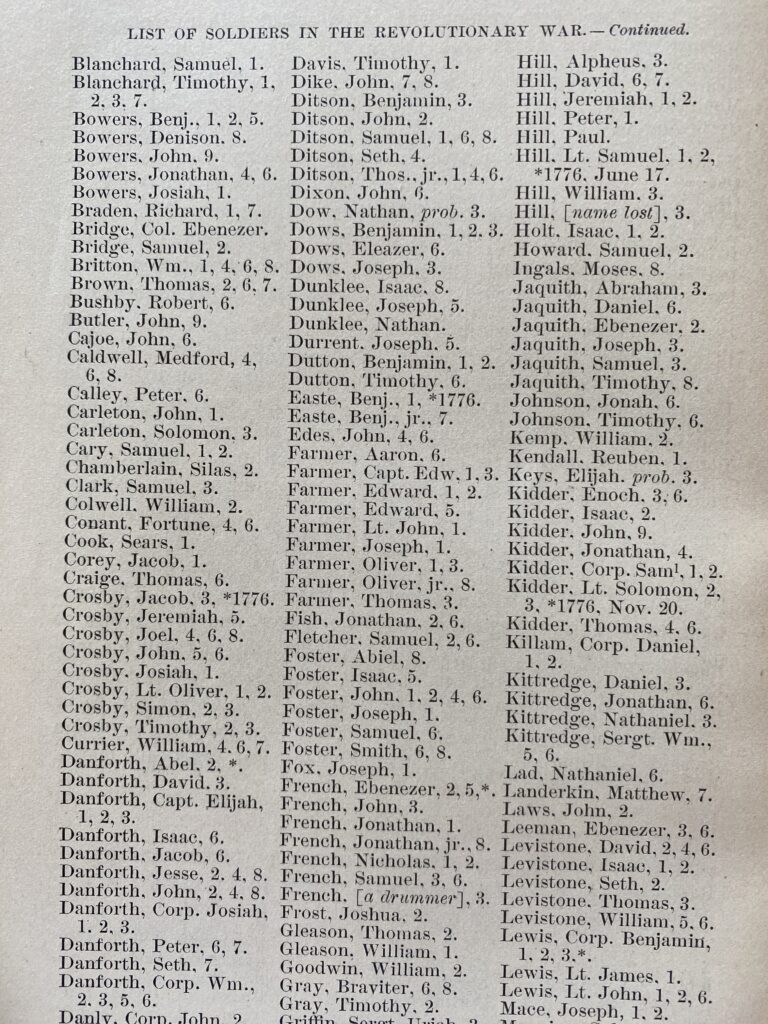
Billerica, MA Patriots that gave their lives in the Revolutionary War.
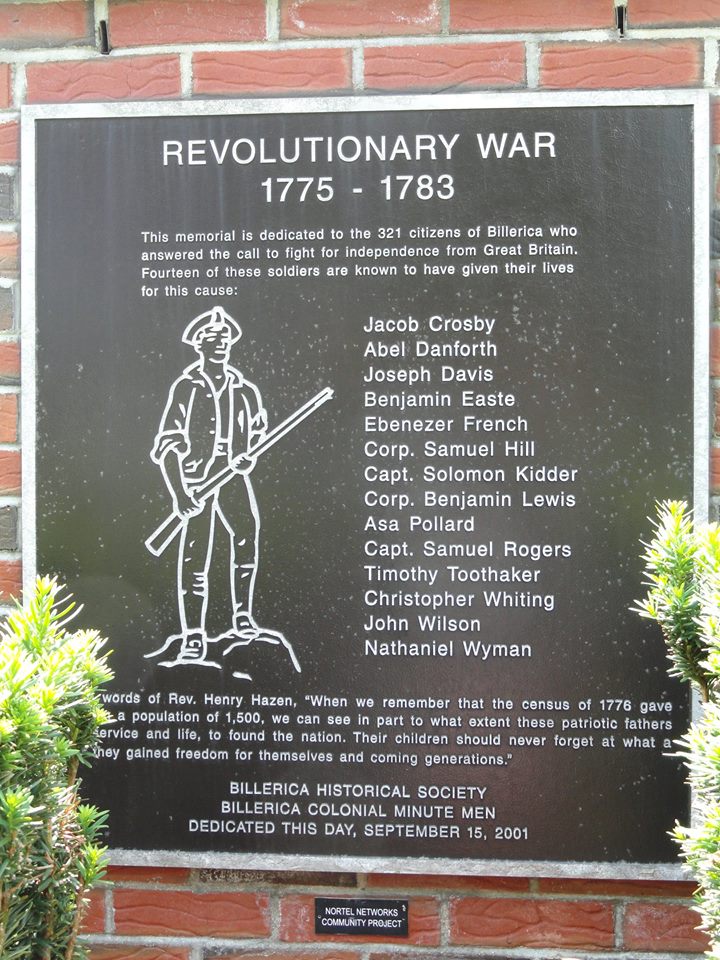
Devastating Extended Family Losses:
French family of Billerica, MA directly related to Crosby, Danforth, Davis, Hill, Kidder, Pollard, Rogers and Toothaker families.
The Battlefield Family Dynamic
On the battlefield, the kinship ties among soldiers could be a source of strength and morale. Knowing that their family members were fighting beside them provided a powerful motivation to stand firm and support each other. This familial closeness meant that news of casualties struck harder and more personally. Each loss was a family tragedy, and each victory was a shared triumph among relatives.
If a family member was killed in battle, it was often a close relative who took on the somber duty of bringing the body home. This act underscored the profound personal stakes involved in the conflict and the deep emotional bonds that held these communities together.
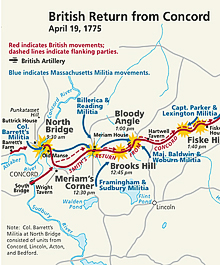
Lexington and Concord: The Billerica MA Militia join the fight at Meriams Corner as British withdraw from Concord. They Battle turn into a rout.
A Unique Historical Phenomenon
This phenomenon of interconnected soldiers has not been seen in American conflicts since the Revolutionary War. As the nation grew and populations became more mobile, the likelihood of entire units being composed of extended family members decreased.
Future wars saw a more diverse and widespread enlistment, where soldiers might not even know each other before joining the ranks, let alone be related.
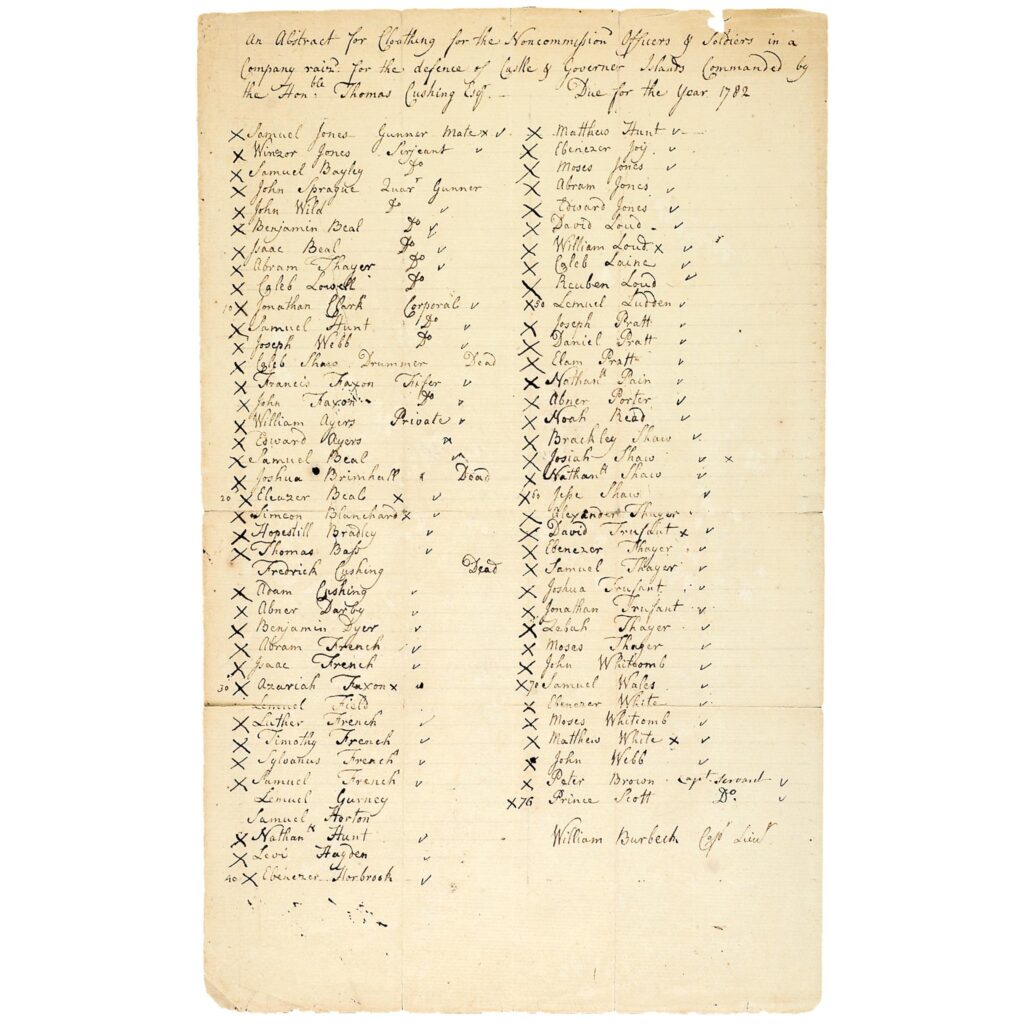
6 French family members on muster roll. Defense of Gov. Island Boston
Distance cousins: Thomas French, bp 27 Nov 1608 in Assington, d. 8 Aug 1680 in Ipswich, MA,
The Legacy of Kinship in the Revolutionary War
The legacy of these kinship bonds during the Revolutionary War is a testament to the unique social fabric of colonial New England. It highlights how the war was fought on both a communal and familial level, intertwining the fight for national independence with deeply personal stakes.
The interconnectedness of these early patriots underscores the communal spirit that fueled the American Revolution, a spirit rooted in the strong family ties that defined much of colonial life.
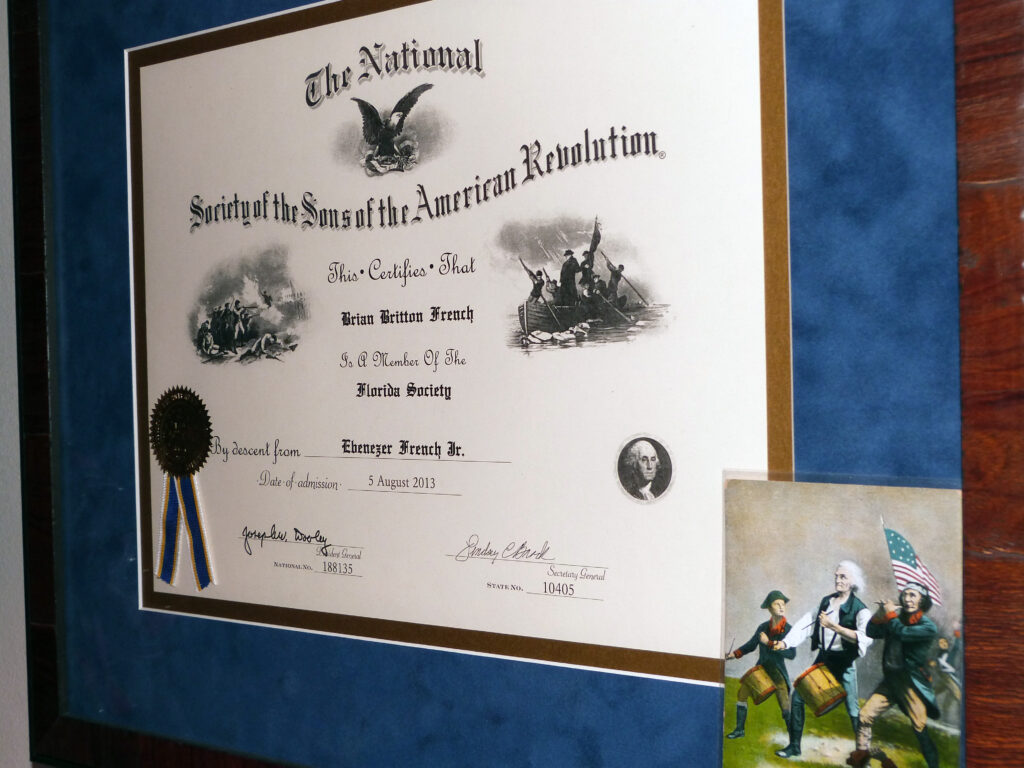
The Revolutionary War in colonial New England was marked by the unique dynamic of soldiers who were often related to each other, a result of generations of intermarriage in small towns. This kinship network created a battlefield where personal and familial bonds played a critical role, making the fight for independence an intensely personal endeavor.
This distinctive aspect of the Revolutionary War underscores the profound impact of family and community ties in shaping historical events, a phenomenon that has not been replicated in subsequent American wars.



